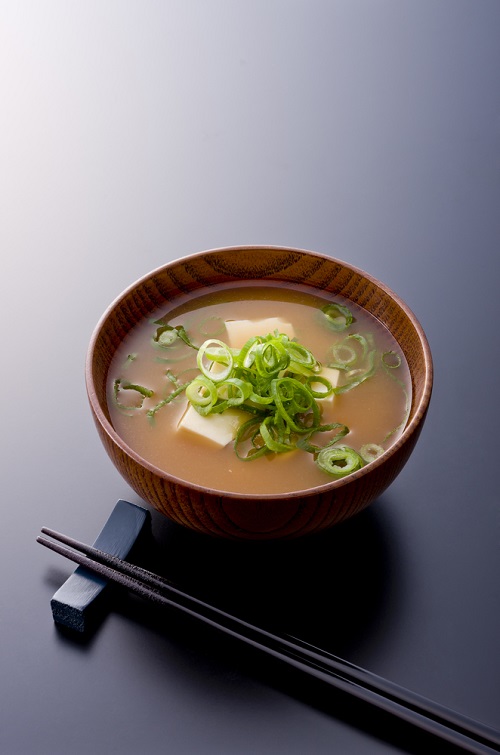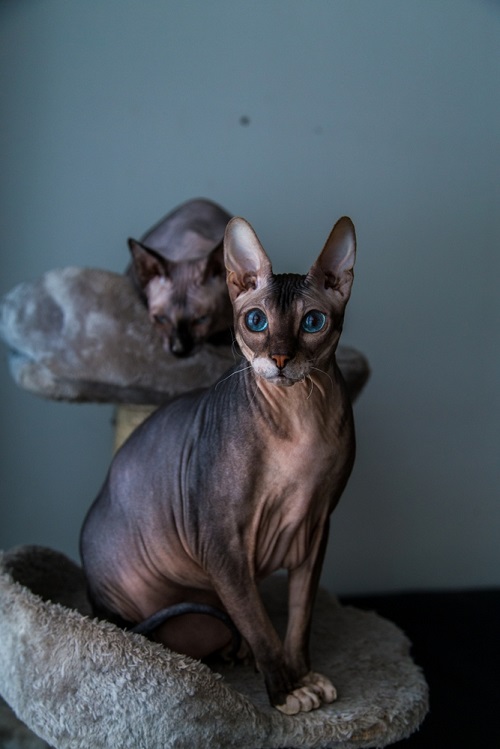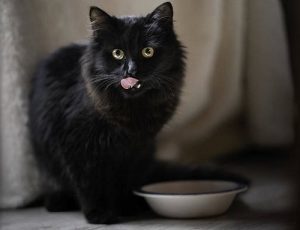Are you a feline parent puzzling over ‘Can cats have miso soup?’ Fear not, and read this article to clear your cloud of doubt!
Cat owners love to treat their furry friends with tasty morsels, but when it comes to miso soup, is it a safe choice? Stick with this article to find out whether Cats Can Have Miso Soup or not below.
Can Cats Eat Chicken Bones? Find out here
What is Miso Soup?
Miso soup is made from a flavorful broth called dashi, which is created by combining dried seaweed (kombu) and dried bonito flakes (skipjack tuna). The soup is then enriched with miso paste, a fermented soybean paste that adds a distinct savory and slightly salty flavor. Additional ingredients such as tofu cubes, sliced green onions, and sometimes seaweed are often added to enhance the soup’s taste and texture. Miso soup is commonly enjoyed as a staple dish in Japanese cuisine, known for its comforting and umami-rich qualities.
Can Cats Have Miso Soup? | Can Cats Eat Miso Soup?

While miso soup is a healthy and delicious meal for humans, it’s not a suitable food for cats. Cats have specific dietary requirements, and their digestive systems are different from humans. Miso soup contains ingredients like miso paste, which is high in sodium, and other seasonings that are not suitable for cats.
Is Miso Soup Safe for Cats?
No, miso soup is not safe for cats. Miso soup contains ingredients like onion, garlic, and miso paste, all of which can be harmful to cats in various ways. For instance, onions are toxic to kitties and can cause serious health issues such as anemia.
Why is Miso Soup Bad for Cats?
Miso soup is not an ideal food option for felines because of the following reasons:
- High Sodium Content: Miso paste, a key ingredient in miso soup, is typically high in sodium. Cats have a lower tolerance for sodium compared to humans, and excessive sodium intake can lead to health issues.
- Seasonings and Additives: Miso soup is bad for felines because it contains soy sauce, onions, and garlic, which are harmful to cats.
Health Risks of Miso Soup for Cats

Feeding miso soup to cats can cause the following health issues:
- Dehydration: Miso soup is high in sodium, which leads to increased thirst and dehydration in cats.
- Electrolyte Imbalances: Excessive sodium intake from miso soup can disrupt the electrolyte balance in kitties.
- Digestive Upset: Cats have sensitive digestive systems, and introducing unfamiliar food like miso soup can cause stomach discomfort.
- Nutritional Imbalance: Miso soup does not provide the balanced nutrition that felines need. That’s why feeding them miso soup can result in nutritional deficiencies.
Cat-Friendly Homemade Soups
Instead of miso soup, you can feed your feline companion these cat-friendly soups:
- Chicken Broth Soup – Chicken broth is one of the healthiest options for a cat. As it’s made from lean meat, it has a good amount of high-quality animal protein, vitamins, and minerals. Avoid including condiments, and make sure the ingredients are properly washed to avoid the risk of contamination.
- Catnip Soup – Catnip is highly desired by cats. That’s why making its soup is an excellent decision. However, it should be given occasionally, and monitor the amount ingested by your feline as well as the after-effects.
- Bone Broth Soup – Bone broth is rich in calcium and can help strengthen your feline friend from within. It can boost their appetite and provide warmth to them in winter.
- Vegetable Soup – Boiled vegetables such as broccoli and carrots can be used with water or broth to make vegetable soup. This can replenish your cat’s hydration level as well as help in the intake of vitamins and minerals. If vegetables high in fiber are used, then it can also boost your cat’s digestion process.
Miso Soup Alternatives for Cats

If you don’t want to feed miso soup or other homemade soups to your furry friend, then try the below alternatives:
- Wet Cat Food: High-quality wet cat food is a great alternative to miso soup. Look for formulations that are specifically designed for cats and meet their nutritional needs. Choose options that are rich in animal protein and do not contain any harmful additives or seasonings.
- Boild Chicken – Plain, boiled chicken is a good treat for cats. It’s a great source of protein, thus a nice addition to their diet. However, avoid using any seasoning.
- Cat Milk: Felines are often lactose intolerant, that’s why regular milk can upset their stomachs. However, you can find specially formulated cat milk at most pet stores. This milk is easier for cats to digest. It can be served at room temperature or slightly warmed.
Can Cats Have Miso Soup? Quick Takeaways!
- Miso soup is a traditional Japanese dish widely recognized for its taste as well as healing properties.
- It’s not advisable to give cats miso soup in large quantities. A spoon or two is enough to fulfill their curiosity.
- Overconsumption of miso soup can lead to various health issues such as dehydration, electrolyte imbalances, nutritional deficiencies, and digestive upset.
- Alternatives such as wet can food, cat milk, and homemade soup maintain the hydration level of cats as well as benefit them in the long run.



